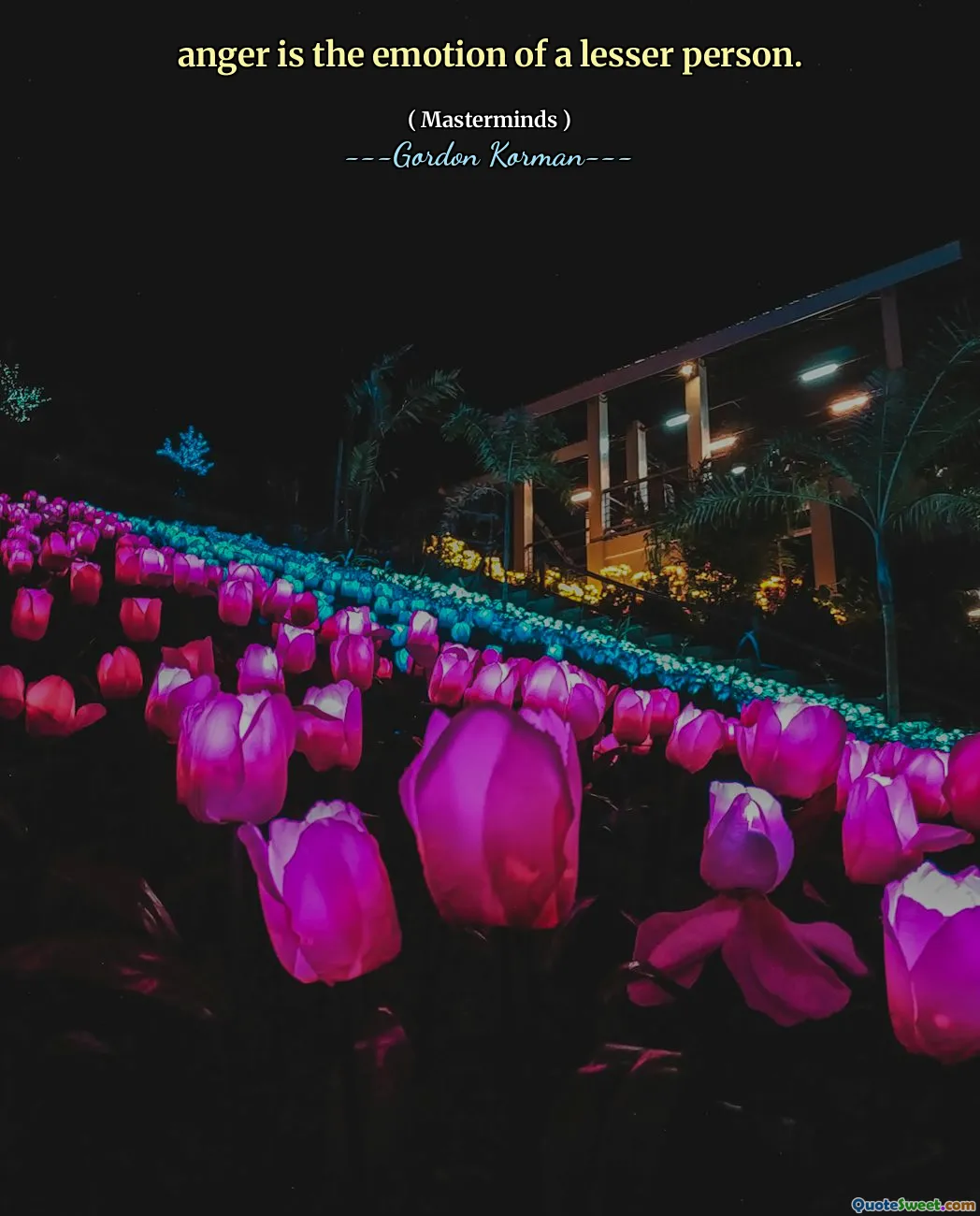
anger is the emotion of a lesser person.
This quote offers a profound insight into the nature of anger and its place in human character. It suggests that true strength and maturity are reflected in one's ability to maintain composure and control emotions, rather than succumbing to impulsive reactions. When someone allows anger to overpower their judgment, they may reveal insecurity, lack of self-control, or a diminished capacity for rational thought. Conversely, individuals who demonstrate patience and restraint often exhibit qualities associated with wisdom and emotional intelligence. Such individuals are likely to approach conflicts with calmness, seek understanding, and resolve issues without escalating them through uncontrolled emotions. It also touches on the societal perception that responding with anger often results in regret or damaged relationships, whereas dignified restraint fosters respect and trust. This idea resonates in numerous cultural and philosophical traditions that esteem humility, patience, and kindness over aggressive reactions. Practicing emotional regulation is a sign of inner strength; it demonstrates mastery over one’s impulses and an acknowledgment that problems can often be addressed more effectively through calm dialogue rather than heated exchanges. In the context of leadership, relationships, and personal growth, controlling anger can be transformative, and allowing oneself to be governed by lesser emotions might hinder progress and damage one's reputation. Recognizing anger as a lesser trait encourages striving towards a more composed and mindful way of living, which not only benefits oneself but also positively influences the surrounding community. Overall, the quote underscores the importance of self-awareness and the value of elevating oneself beyond base emotional responses to achieve a higher level of personal integrity and harmony.







